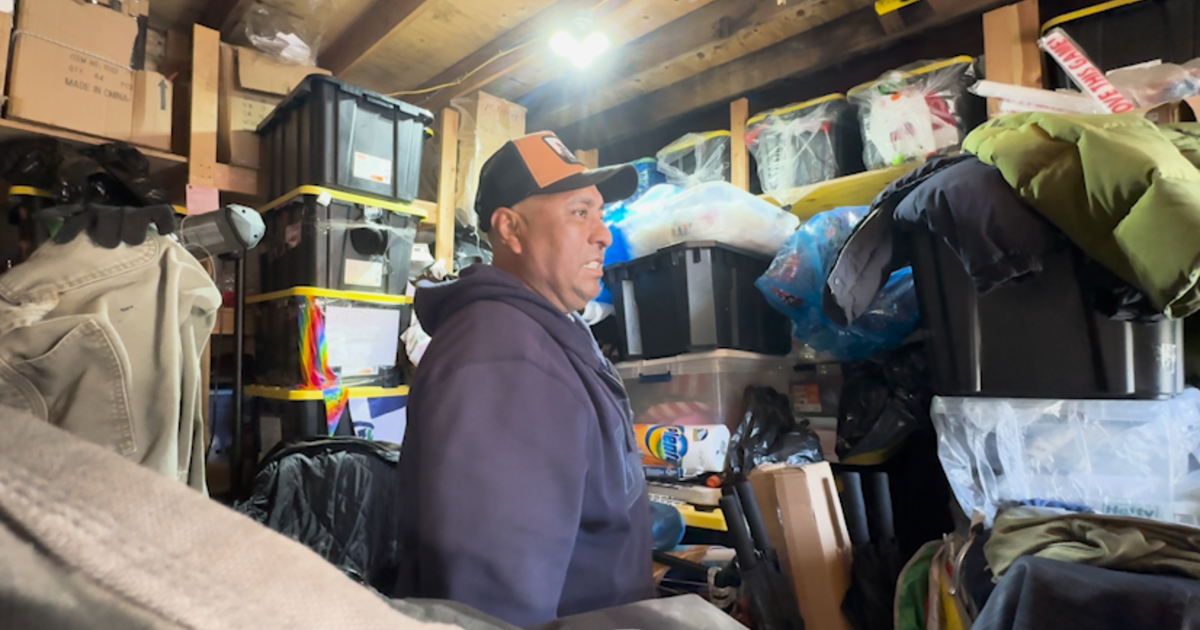Consumer Credit Expert Warns Of Pitfalls Of Comfort Spending While Home During Coronavirus Pandemic
NEW YORK (CBSNewYork) -- With so many of us at home during he coronavirus quarantine, it's no surprise that some of us are heading online to take part in retail therapy.
But are there any downsides to comfort or impulse shopping? CBS2's Kiran Dhillon recently looked into that.
For so many of us, shopping is a way of life. And even though COVID-19 has forced us to stay home, that doesn't mean shopping has stopped.
MORE: Study: Majority Of Americans Now Fearful Of Shopping Inside Grocery Stores
It has just moved online. In fact, for some people like Manhattan's Kenzie Lau-Kee, the pandemic has made the normally conscientious shopper's spending much more compulsive.
"I've been buying so much home decor and I've been redecorating. I've been buying new clothing, new shoes, and just everything that gets me excited for this to be over," Lau-Kee said.
CORONAVIRUS PANDEMIC
- Resources, Hotlines, Unemployment & Covering Bills
- Remote Learning Tools For Parents Teaching At Home
- Ask Dr. Max Your Health Questions
- How Make Your Own DIY Face Mask
- How To Safely Remove Disposable Gloves
- Tips For Parents To Help Kids Cope
- Chopper 2 Over Empty NYC Streets, Landmarks
- Complete Coronavirus Coverage
Lau-Kee estimates she's spent a few thousand dollars in just a few weeks.
"I almost couldn't help it. Like, it just made me feel so much better," Lau-Kee said. "And on the flip side of it, I was saving so much money because I wasn't going out and I wasn't spending on things that I normally do. That was almost like a false sense of security."
She is not the only one.
Delivery services like FedEx and USPS say they've seen an increase in e-commerce orders and shipments since the pandemic started. There have been so many packages sent since March, delays have been inevitable.
"It is looking forward to something in the future. And that's really what we're seeing, why consumers are increasing their spending," consumer credit expert Paul Oster said.
Oster, the president of Better Qualified, said more people are buying right now, when they should be saving.
"Most people are on some type of reduced income, if it's not unemployment, reduced hours at work, or, or no income at all. So even though they might be okay for the short term, no one knows where this is really going," Oster said.
CORONAVIRUS: NY Health Dept. | NY Call 1-(888)-364-3065 | NYC Health Dept. | NYC Call 311, Text COVID to 692692 | NJ COVID-19 Info Hub | NJ Call 1-(800)-222-1222 or 211, Text NJCOVID to 898211 | CT Health Dept. | CT Call 211 | Centers for Disease Control and Prevention
Oster said that's especially true since the gratification that comes with comfort shopping is short lived, but the impact is long term.
"You have the perfect storm of credit card issuers are lowering credit limits. People are increasing credit card balances. The entire credit landscape is being reshaped," Oster said. "Moving forward, it's going to be more difficult to buy a car. It's going to be more difficult to get a mortgage. Your credit score is either gonna cost or save you money."
If you are struggling with your spending, Oster recommends first identifying what triggers are causing your impulse buys, and then exercising discipline. He said while it may be hard to believe, budgeting can bring as much of a high as spending.
"Paying off small credit cards. You know, putting a plan in place. Maybe it's retirement. Maybe it's college funds," Oster said.
And he said if you have to buy, keep the purchases simple and spread out.
That's all advice Lau-Kee said she plans to take.
She said her shopping binge was fun for awhile, but she now plans to put a cap on it.



